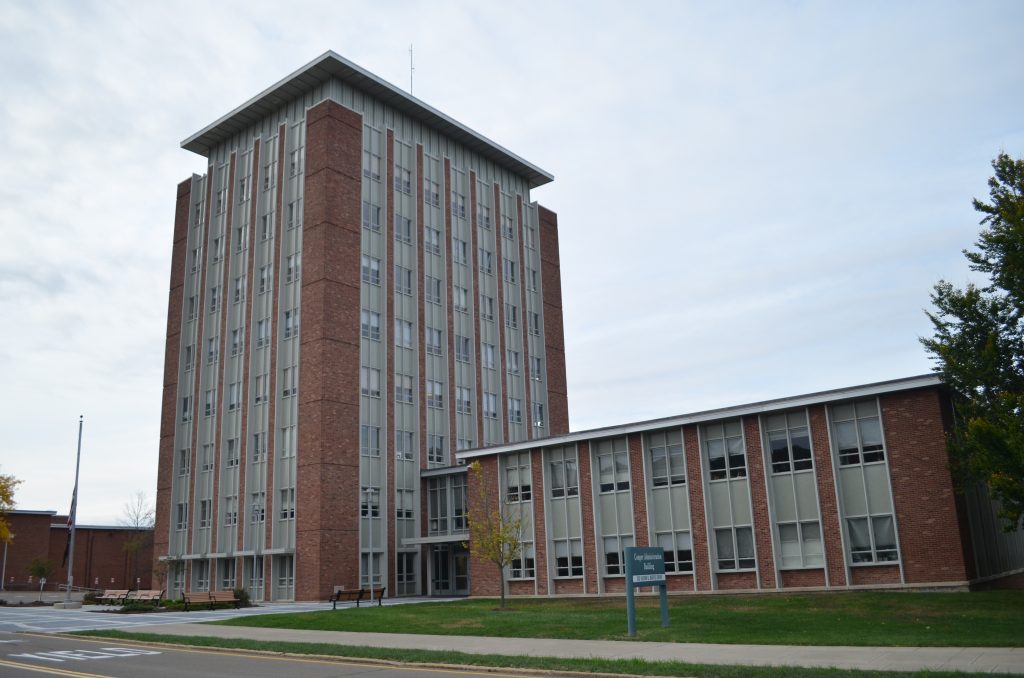Due to recent criticism regarding Binghamton University’s handling of sexual assault cases, a Title IX Council has been formed in hopes of remedying the situation.
In a July 14 B-Line Addition, BU President Harvey Stenger detailed 12 reforms that would be implemented to help with sexual assault prevention on campus. The reforms follow the creation of @shareyourstorybing, an Instagram account which posts anonymous stories from sexual assault survivors at BU. As of Oct. 11, the account had shared 869 posts.
Initiatives outlined within the 12 reforms include an anonymous reporting site, the suspension of any Greek life organizations that are connected with a sexual assault case, the establishment of two sexual violence investigators and the formation of the Title IX Council. Additionally, all incoming freshmen have been required to complete an online training session by SafeColleges regarding sexual assault. SafeColleges is a company, part of Vector Solutions, which provides training and education for students on maintaining a safe and healthy environment on college campuses.
Title IX is a law that protects college students from sexual discrimination and sexual violence. The council consists of the dean of students, a representative from the Binghamton’s New York State University Police (UPD), the director of the Consultation, Advocacy, Referral and Education (CARE) team, the director of health and counseling, the director of Health Promotion and Prevention Services (HPPS), the assistant vice president of diversity, equity and inclusion, the director of Residential Life and the director of student conduct. During the academic year, the group meets once a week.
Andrew Baker, Title IX coordinator and chair of the council, said the council is working to achieve a coordinated response toward sexual assault cases.
“The council brings together leadership from a variety of offices to coordinate response to reports of dating violence, domestic violence, stalking and sexual harassment/assault/discrimination,” Baker wrote in an email. “The goal is to provide a coordinated, comprehensive University response to these reports.”
Anna Jantz, sexual assault advocate for the council and case management coordinator for the CARE team, said she wants to ensure that the council has made students fully aware of their own rights should they happen to be sexually assaulted.
“My work is centered on supporting those in the BU community who are affected by interpersonal violence and issues,” Jantz wrote in an email. “In collaboration with the Title IX Council, I work to make sure that those affected by these issues [of sexual assault] are aware of their rights, options and resources.”
Noelle Dutch, an undeclared freshman, believes the council should consist of members beyond administration staff.
“There needs to be student representation,” Dutch wrote. “There should also be [more professionals] in sexual assault, not just a ‘retrained’ counseling staff.”
Emily Worth, a sophomore majoring in business administration, believes that the council will be successful.
“I do think that the council will be effective,” Worth said. “A weekly council meeting also sounds very productive, specifically regarding the cases that occurred in fraternities.”
Domestic and Oppressive Violence Education (DOVE) is a student group at the University that works to educate students and the BU community on discriminatory violence that can occur in homes or on campus, some of which includes intimate partner and interpersonal violence. Isabela Budelmann, president of DOVE and a senior double-majoring in psychology and philosophy, politics and law, and Ariel Makower, vice president of DOVE and a senior double-majoring in biology and philosophy, both agree that the council is an effective reform, but believe the school can do more than just create a council.
“Creating a Title IX Council is pertinent, as it represents a step in the right direction in taking these cases seriously,” Budelmann and Makower wrote in a joint statement. “However, the fight against sexual assault must start far before that too. We also need to focus on education and counseling services.”
The two went on to elaborate how sexual assault should be treated.
“Sexual assault and violence is the product of a systemic issue,” Budelmann and Makower wrote. “We must foster an environment of healing and growth. That is how you curb sexual assault, you begin at the grass root of the issue. We, of course, are glad to see BU taking steps towards positive change though and look forward to working with them to continue to do so.”



